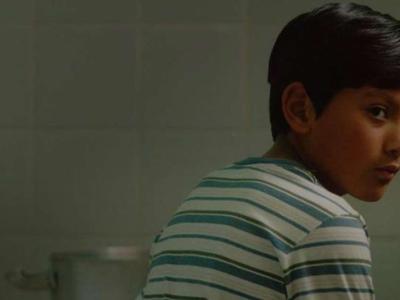As I offer my heart-felt ‘felicidades’ to an Argengtine nation in delirium, let me correct Karl Marx...football, not religion, is the true opium of the masses. Rarely have I seen, since Raul Alfonsín won Argentina’s first elections after years of military rule in December 1983, so many jubilant crowds across the political and social divide take to the streets of central Buenos Aires. But of course, seeing the triumphant Messi and his Argentine squad on their arrival from Qatar take us back to the scenes of June 1986 when Argentina last won the World Cup, thanks to Diego Armando Maradona.
Such outpourings of national celebration are to be expected of a football mad nation that for most of its history - but for a brief honeymoon period under Alfonsin - has been a basket case in political and economic terms. Indeed how can a nation not be glowing with pride, having produced the two best players in the history of modern football - with the only glaring similarity, apart from their nationality, that of their relatively small siz.
The ‘feel-good’ factor generated by Messi’s victory in the desert, will provide temporarily a much-needed feeling of shared positivity among his countrymen and women, a shot of happiness and renewed self-belief in the gloom and despair, of the country’s endemic ills.
Football is not rational, let alone moral. Lest we forget, Argentines celebrated in their multitudes their first World Cup victory in 1978, while the military dictatorship was killing thousands of people. Near the River Plate Stadium where Argentina played the final was the notorious naval barracks where students and political dissidents opposed to the military regime were being tortured and ‘disappeared.’ Argentina's win secured the military dictatorship another four years of repressive rule.
The repression and corruption in the Argentina that hosted the 1978 World Cup dwarf even the harshest allegations made against Qatar. Not only did an estimated 30,000 people ‘disappear’- tortured and murdered - under the Argentina of the juntas, but football itself was overshadowed by allegation of bribes and drug taking. Qatar’s own fledgling national football team in a country of temporary stadiums could manage only a symbolic presence while FIFA came out clear winners, having made incalculable fortunes.
For all the efforts of some Western media to expose Qatar’s abuse of immigrant labour and intolerance of LGBT rights, the well-oiled public relations exercise of which both Messi and Mbappe were among the paid ambassadors, managed to quell such voices banning all expressions of dissent on and off the pitch. Only the England’s squad’s taking the knee before each match during the tournament endured as a visible and necessary reminder of who paid the price.
In the end, Messi , a universal sports superstar of the digitalised age , finally clinched the crown that glorified football as he played it, at his very best and most compelling at the age of 35. The idol who for years wanted to please his country in vain, was also deserving of our collective thanks for the innumerable games, mainly at club level, breaking almost every football record statistic, filling many afternoon with wonder.
The Argentina-France final was indeed an emotional roller coaster but no game in Qatar for me equalled the excitement of Argentina’s Malvinas/Falklands Round Two , quarter final match against England in Mexico in the summer of 1986, where Maradona managed to both score a goal with his hand (The ‘Hand of God’ he called it) and then single-handedly deliver the most magnificent build up to a most beautiful goal ever scored in a World Cup.
Nor did the recent World Cup tournament equal the sheer razzamatazz of the World Cup in the US in 1994, and tragicomedy of Maradona’ expulsion from it. The extraordinary story is told in a new documentary Maradona: The Fall which focuses on the build-up to the US World Cup, which saw Maradona recovering from a 15 month ban for cocaine misuse to help an underperforming Argentina reach the tournament, only to have the dream shattered when the player was expelled after the second match of the opening Group stage.
Maradona struggled against the devils within him, but also became a victim of the backstairs scheming of FIFA, who both exploited and sacrificed him, at the age of 34, not on the altar of glory and riches , as Messi was in Qatar aged 35, but thrown to the dogs of scandal. And yet the memory of Maradona endures as not just a genius of the game, but an icon and a legend, a people’s champion and defiant rebel who spoke up for those like him who had been born into poverty.
As one of the placards held up amidst the mass of largely shirtless Argentines at his funeral declared: ’It doesn’t matter what you did with your life, but what you did with ours.’
Of course, Maradona squandered his talent, in a way that Messi has never done. Maradona belonged to an age of rock stars that rather than keep fit and grow old cautiously , indulged and died young, but his passion for the game at its height made him live and suffer for it, and set alight emotions in a way no other sportsman has managed however talented before or since -not even that other great little big man of the game, Messi, arguably.
It used to be said that Messi was badly let down over the years by a dysfunctional Argentine team of badly coached players. In the long running debate among Argentines as to who was the greatest player, Diego or Messi , older generations remembered Maradona’s commitment as a player to the national cause and his winning goals, not his sometimes abusive volatility or drug taking
For Messi, for all his triumphs with Barca, and winning the last Copa de America , it was the World Cup - Maradona’s moment of glory in 1986 as well as tragic but almost mystical Fall in 1994 - that had remained Messi’s elusive target, his underachievement, almost fatal flaw-until Qatar.
If the Qatar World Cup will be remembered as Messi’s crowning victory , it had Diego looking down from above, his spirit enduring among the fans.
Jimmy Burns is author of Maradona: The Hand of God (Bloomsbury) and Cristiano & Leo (Macmillan) He is the consultant of the recently released DAZN Original documentary Maradona: The Fall , directed by Emmy Award-winning director , Angus Macqueen















